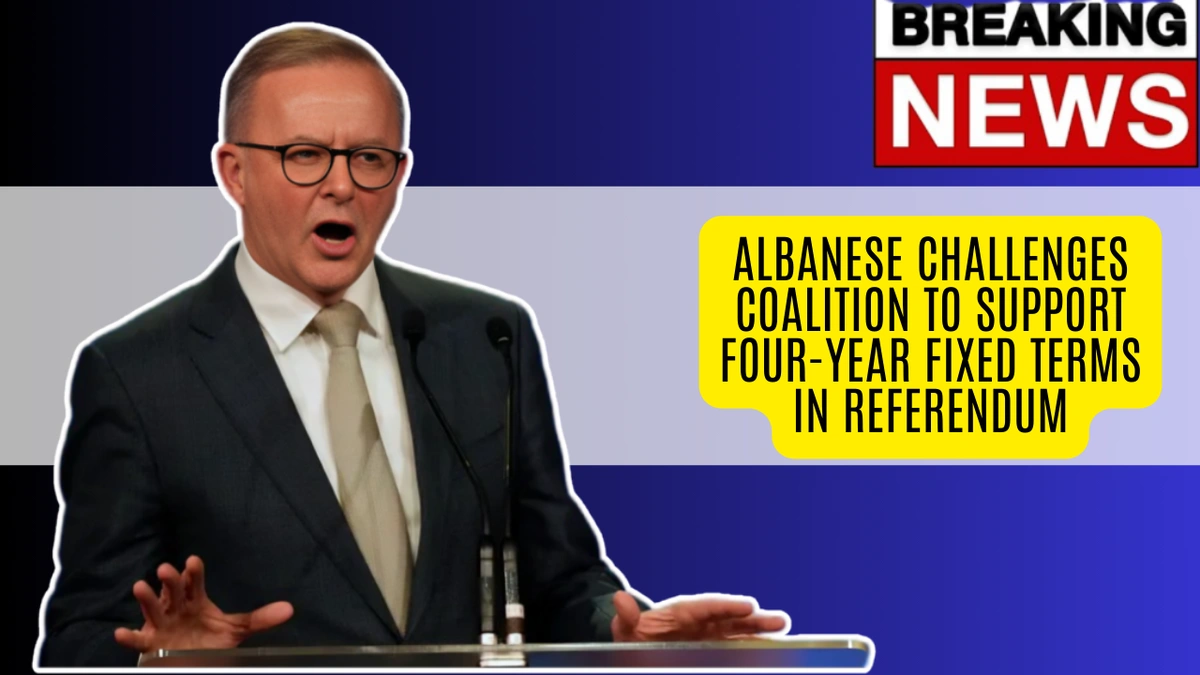Albanese Challenges Coalition to Support Four-Year Fixed Terms in Referendum: Prime Minister Anthony Albanese has expressed doubt over the Coalition’s potential support for his proposal to introduce four-year fixed terms for federal elections in Australia. During a recent public address, Albanese emphasized the need for the nation to consider changing its electoral system so that governments serve a fixed four-year term. However, the change would require a referendum for it to be implemented, and Albanese is not optimistic about receiving backing from the opposition party on this issue.
Albanese’s skepticism stems from past experiences where the Coalition, despite initially expressing support for referendums, eventually reversed their stance. He pointed to the 1980s, during the Hawke government, when the Coalition appeared to be in favor of such changes, only for the support to dissipate later, citing the example of Peter Reith changing his position after initially supporting the idea. Albanese’s comments are informed by the history of referendums in Australia, as no referendum has passed without support from both the government and the opposition. The 1988 referendum to introduce fixed four-year terms for the federal parliament was roundly rejected, with the ‘No’ vote prevailing in every state and territory, garnering less than a third of the national vote.
The argument for shifting to four-year terms is not new. While the federal government operates on a three-year cycle, every state and territory in Australia already employs fixed four-year terms for their own elections. This discrepancy is unusual on the international stage, where most countries with a parliamentary system tend to have longer fixed-term arrangements. Proponents of four-year fixed terms argue that this change would provide more stability for governments, giving them a longer time frame to implement policies and reducing the frequency of elections that can often be disruptive to long-term planning. They also argue that such a system could reduce political instability and allow governments to focus on policy rather than electioneering.
Albanese’s call for fixed four-year terms comes as he continues to push for significant reforms in the country. However, the issue of electoral term length may not be the most pressing concern for Australian voters at the moment. The 2025 federal election is still some time away, but Albanese’s remarks in Cairns suggest that the upcoming election will be centered around issues such as cost-of-living pressures, particularly energy costs and housing. These are concerns that have been dominating public discourse, with Albanese’s government aiming to support the Australian public through these challenges.
During the same Cairns event, Albanese also made a point to highlight the importance of addressing cost-of-living issues. He emphasized his government’s commitment to helping Australians navigate financial pressures, particularly in areas like energy costs and housing affordability. Albanese framed the upcoming election as a choice between his government’s forward-thinking policies and Peter Dutton’s opposition, accusing Dutton of attempting to take Australia backwards by opposing the government’s efforts.
While the Coalition’s position on four-year fixed terms remains uncertain, the issue reflects the broader debate around Australian democracy and electoral reform. A change to a fixed four-year term would require not only the backing of the government but also the full support of the opposition, something that, based on past experience, Albanese does not expect from the Coalition. For now, the proposal remains just that — a proposal — with the outcome of any future referendum still uncertain. The 2025 election, however, will likely be the defining moment for the Albanese government, with voters set to decide on issues like cost-of-living, energy, and the country’s future direction.



